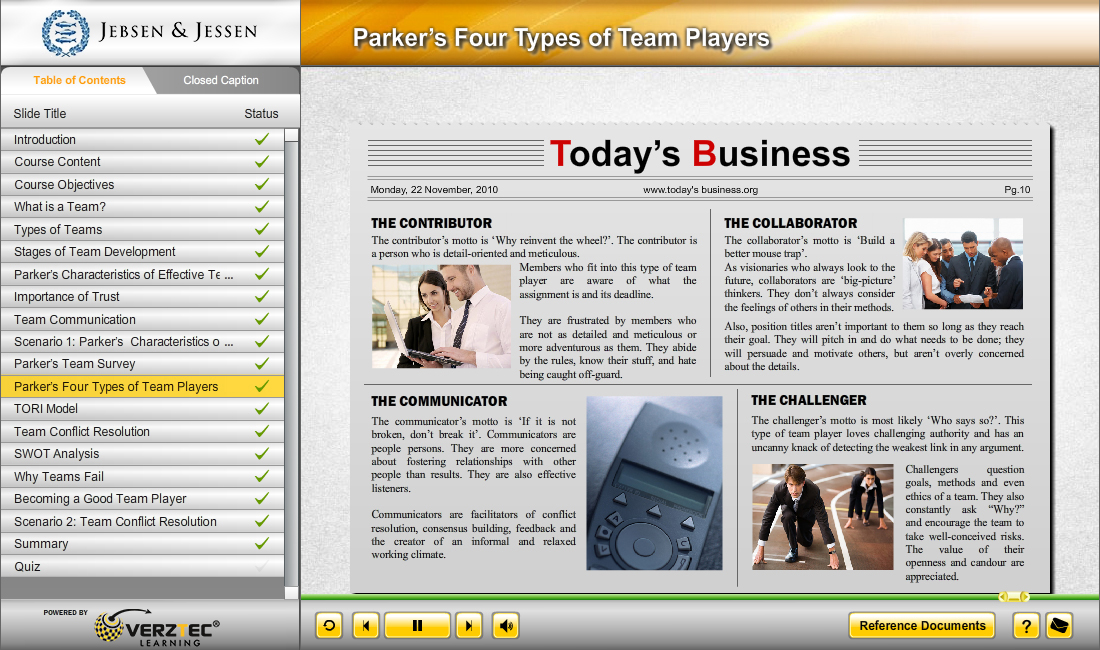


We studied a sample of 42 teams ( N = 284 individuals) who completed measures of team roles, character strengths, teamwork quality, job satisfaction, and self-rated individual and team performance. Further, we examined how the team composition relates to the outcomes, that is, whether balanced teams (i.e., all team roles or character strengths are represented in the current team) go along with desired outcomes and whether an overrepresentation of team roles or character strengths in a team (i.e., a team role or character strengths is represented by multiple team members) goes along with undesired outcomes. In the present study, we extend theoretical assumptions of team role theories to the study of character strengths and positive team roles: We examined the associations between character strengths and team roles with work-related outcomes on the individual (i.e., job satisfaction, self- and supervisor-rated performance) and the team level (i.e., teamwork quality, self- and supervisor-rated team performance). However, there is a scarcity of research on the role of character strengths or positive team roles on the level of teams. Recent research has also identified individuals’ character strengths and positive team roles (e.g., idea creator and relationship manager) as conducive to work-related outcomes.

Teamwork has been argued to play an increasingly important role in numerous jobs, and several studies focused on the effects of team composition for work-related outcomes. 2Clienia Littenheid AG, Littenheid, Switzerland.1Department of Psychology, University of Zürich, Zurich, Switzerland.Fabian Gander 1*†, Ines Gaitzsch 2 and Willibald Ruch 1†


 0 kommentar(er)
0 kommentar(er)
